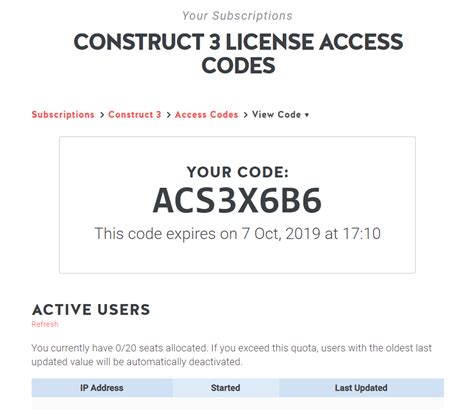An access code is a type of security measure that is used to control access to a particular resource, such as a building, a computer system, or a website. Access codes can be either physical or digital, and they can be used to grant access to a specific individual or group of individuals.

How Access Codes Work
Access codes work by verifying the identity of the user who is attempting to access the resource. This verification can be done in a variety of ways, including:
- Physical access codes: Physical access codes are typically used to control access to buildings or other physical spaces. They can be in the form of a key, a card, or a fob. When the user attempts to access the space, they must present the access code to a reader, which will verify the code and grant access if it is valid.
- Digital access codes: Digital access codes are used to control access to computer systems or websites. They can be in the form of a password, a PIN, or a biometric identifier. When the user attempts to access the system or website, they must enter the access code into a login screen. The system will then verify the code and grant access if it is valid.
Types of Access Codes
There are many different types of access codes, each with its own unique purpose. Some of the most common types of access codes include:
- One-time access codes: One-time access codes are codes that are only valid for a single use. They are often used for temporary access to a resource, such as a hotel room or a rental car.
- Permanent access codes: Permanent access codes are codes that are valid for multiple uses. They are often used for long-term access to a resource, such as a home or a workplace.
- Shared access codes: Shared access codes are codes that can be used by multiple users. They are often used for access to common areas, such as a lobby or a kitchen.
Benefits of Using Access Codes
There are many benefits to using access codes, including:
- Increased security: Access codes help to increase security by preventing unauthorized access to resources.
- Convenience: Access codes can be convenient for users, as they eliminate the need to carry around keys or other physical access devices.
- Flexibility: Access codes can be easily changed or revoked, which makes them a flexible security measure.
Considerations When Using Access Codes
There are a few things to consider when using access codes, including:
- Security: Access codes should be strong and difficult to guess. They should also be changed regularly to prevent unauthorized access.
- Convenience: Access codes should be easy to remember and use. They should also be accessible to all authorized users.
- Cost: Access codes can be expensive to implement and maintain. The cost of implementing an access code system should be weighed against the benefits of increased security.
Conclusion
Access codes are a valuable security measure that can help to protect resources from unauthorized access. They are easy to use and implement, and they can be tailored to meet the specific needs of any organization.
